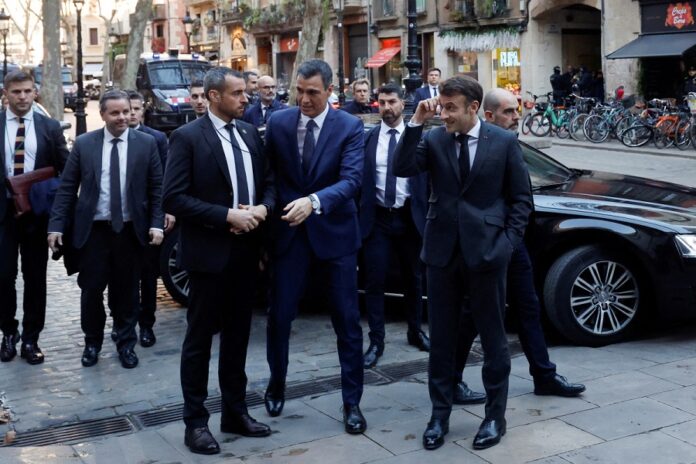A new row has erupted between France, Germany and Spain over nuclear energy, with Paris furious about a lack of support from Berlin and Madrid for its efforts to have nuclear-derived hydrogen labelled as ‘green’ in EU legislation, sources said, according to Reuters.
The dispute, which could block a multi-billion euro hydrogen pipeline from the Iberian peninsula via France to Central Europe, is also delaying Europe’s green energy legislation and threatening to break out into the open at an European Union summit on Thursday.
France, which relies on its ageing nuclear fleet to generate electricity, is leading a campaign to count hydrogen made using nuclear power – known as “red” hydrogen – in the EU’s new renewable energy targets, which currently focus on green hydrogen made using electricity from renewable sources.
Paris is now accusing Spain and Germany of reneging on commitments France says their leaders made at meetings in Barcelona and Paris to consider ‘low-carbon’ energy, which is code for nuclear, as clean.
“These negotiations are not taking a good turn,” Agnes Pannier-Runacher, France’s energy minister, told a small number of reporters last week about the EU’s new renewable energy targets, included in a bill known as the RED-3 directive.
“It would not be understandable for Spain and Germany to take different positions in Brussels and not keep their commitments,” she said.
After much foot-dragging, French President Emmanuel Macron agreed to the hydrogen pipeline between Barcelona and Marseille in October, a deal formalised at a summit with Spanish counterpart Pedro Sanchez in Barcelona in January.
Germany was formally added to the project after a joint Franco-German summit in Paris a few days later, with Berlin wanting to import hydrogen from Iberia and further south as it weans itself off Russian gas.
Macron’s green light for the so-called H2Med or BarMar project was, according to Paris, in return for Spanish and German commitments on red hydrogen.
French officials point to a joint statement signed in Barcelona that states “Spain and France recognise the importance of the production, transportation and consumption of clean hydrogen as produced from renewable and low-carbon energy sources”.
In Madrid, officials say the row is a “misunderstanding” and they are willing to be flexible on red hydrogen in other legislation such as the gas market directive, but not in the renewables bill.
“Red hydrogen cannot be renewable because nuclear is not an energy that can be considered as such. It is impossible,” a senior Spanish government source told Reuters.
Berlin’s stance appears to mirror Madrid’s. “I doubt it was ever a formal promise that red hydrogen would be accepted as ‘green’ if the pipeline from Spain is realised,” a German official with knowledge of the negotiations said.
“Maybe the French calculation was that it would be more easily accepted by partners, but that’s a different thing.”
Macron will take the issue to Thursday’s EU summit and two European officials said he could threaten to block the pipeline in retaliation.
Hydrogen is central to Europe’s plans to decarbonise heavy industry, with the European Commission saying its green hydrogen aims require investment of up to 300 billion euros in new renewable electricity production.
At least six EU officials said they fear the dispute could spill over to a raft of other policies that are being expanded to cover renewable or low-carbon hydrogen, potentially delaying laws needed to meet the bloc’s climate targets.


